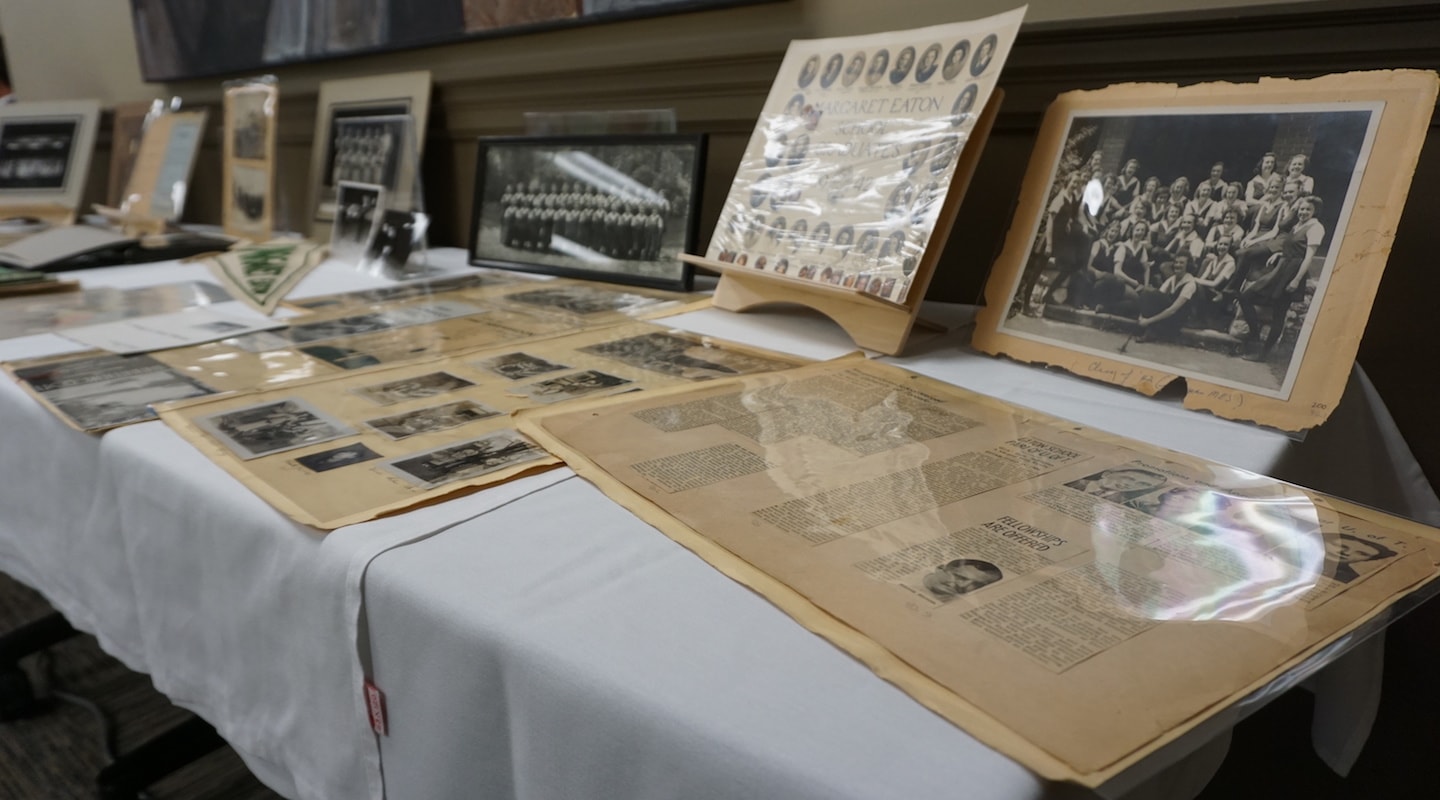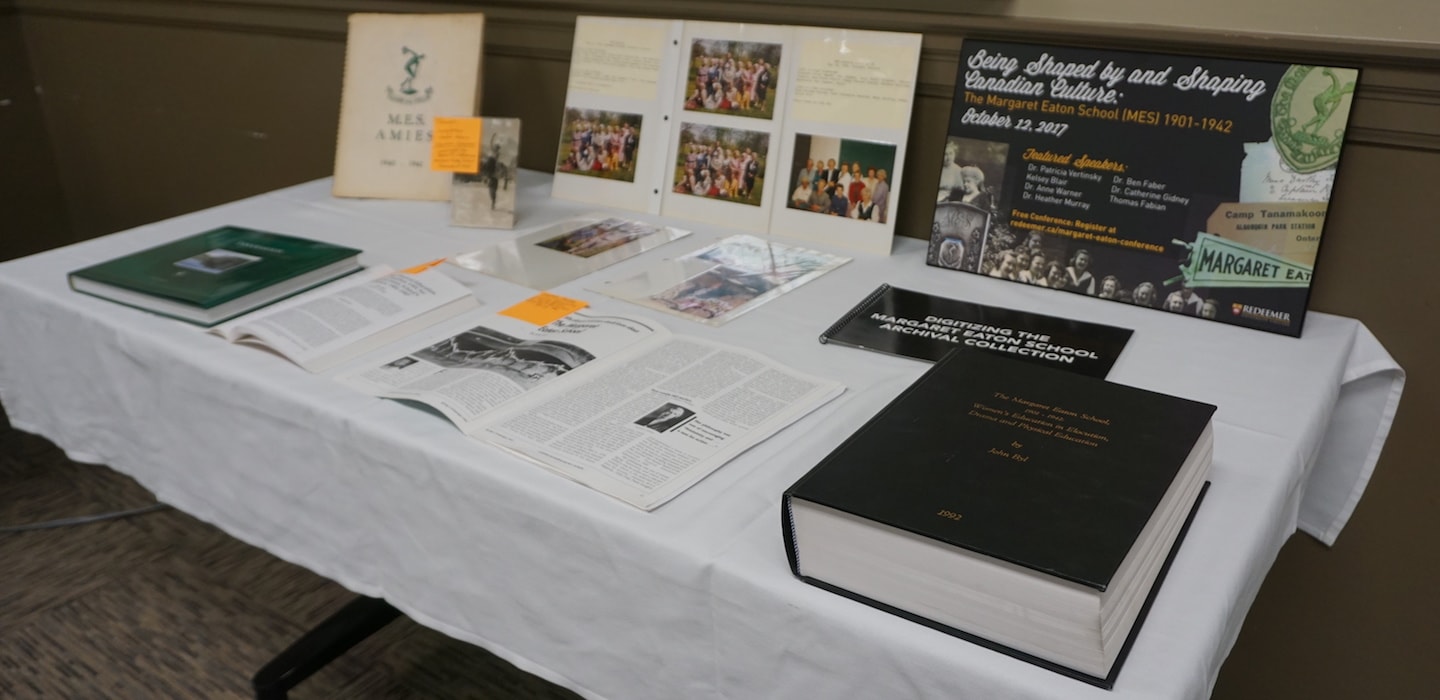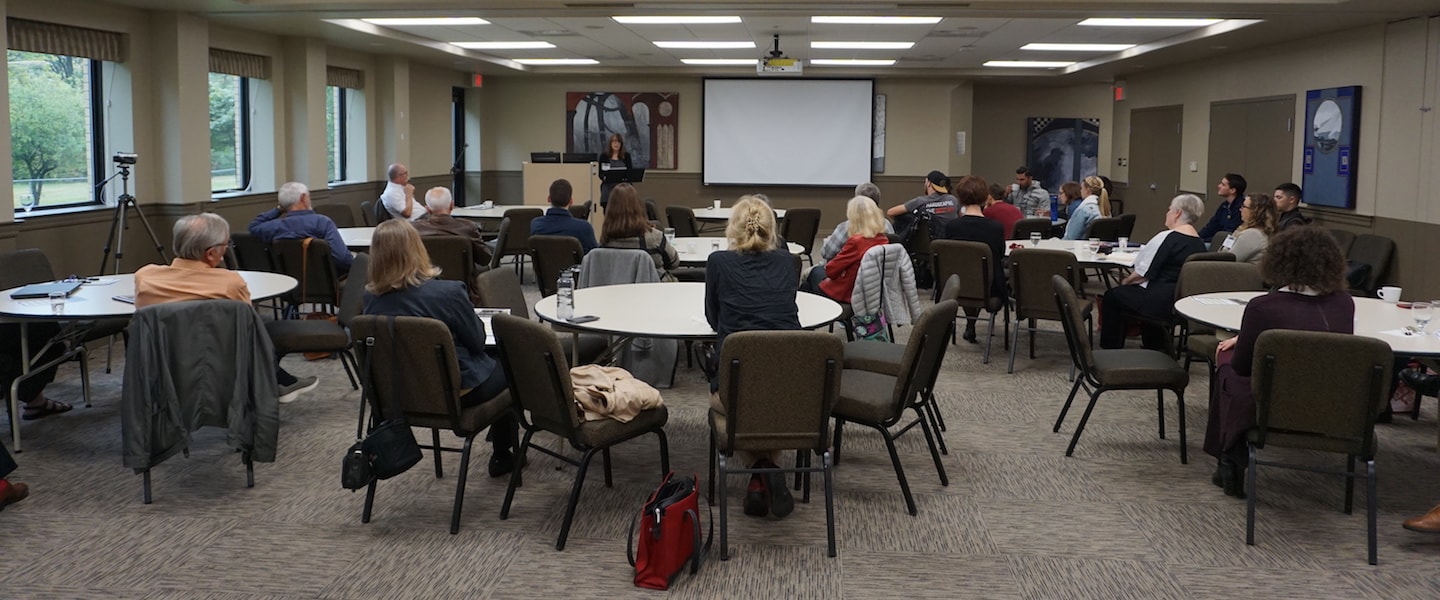The Margaret Eaton School was a private, independent post-secondary institution that faced many of the benefits and challenges still seen in Christian higher education today. The school filled an educational niche, had small class sizes, offered unique educational experiences and encouraged collegial relationships between faculty and students. But the Margaret Eaton School also wrestled with financial viability and accreditation challenges and struggled to maintain a united vision.
Emma Scott Raff, a visionary leader, founded the Margaret Eaton School in 1901 as a school of elocution for women. Margaret Beattie Eaton — wife of Timothy Eaton, the entrepreneur who founded the Eaton’s Company — became the new school’s major benefactor. Physical education was included in the curriculum because a strong body was considered important for proper voice projection.
But by 1925 there was a parting of ways between the founding principal and the benefactor; the principal had resigned, and the benefactor had stopped financially supporting the school. With new leadership, the focus of the school’s curriculum shifted to physical education, with a unique one-month camp experience marking the start of each academic year. The Eaton’s Company continued to underwrite the school’s deficits.

Most of the graduates from this normal school (teacher’s college) gained employment in the YMCA movement. In fact, I learned in a study I completed that, by the late ’30s, 90 per cent of the physical education directors in the Canadian YWCAs were Margaret Eaton School graduates. Unfortunately, these highly qualified women graduates could not teach in the Ontario school system because the school was not accredited by the Ontario Ministry of Education. In 1942 the school merged with the University of Toronto to begin the first Bachelor of Physical and Health Education degree program in Canada.
Aside from a small booklet on the school by one of the Margaret Eaton faculty — and the occasional reference in articles and books — little was known about the Margaret Eaton School. That changed when Anna Lathrop and I completed our dissertations on this school in 1997 and 1992 respectively. Part of my work included interviewing and connecting by mail or phone with about 100 of the school’s 420 graduates. They donated scrapbooks, photo albums, course notes, textbooks and other artifacts of their experience to me. I donated this collection to Redeemer. A couple who later purchased Emma’s Toronto home discovered several boxes of cards, letters, and other materials about MES and Emma Scott Raff in their home’s attic. They contacted me and arrangements were made to add these new documents to the Redeemer archives.
In one of my classes, a student showed a video that had been posted by a Bob Young. I followed this lead — and it turned out that Bob Young is an entrepreneur who owns a number of companies, including the Hamilton TiCats and Lulu Publications among others. It also turned out that Young was the great grandson of Emma. Young and I dialogued about the archives and Young agreed to contribute the finances to pay for two students (Emily Power for two summers, and Collette Van Zeumeren for one summer) to digitize the 17,000 items. The archives provide rich documentation of Canadian women’s experience in post-secondary education, theatre, physical education and outdoor education in the first half of the 20th century. You can view the Margaret Eaton School Digital Collection online.

Archives are only as good as people know about them. Bob Young and Kim Smith (owner of Camp Tanamakoon begun by Mary Hamilton, the Margaret Eaton School’s principal from 1925-1936) agreed to fund a conference on the Margaret Eaton School.
That conference, titled “Being Shaped by and Shaping Canadian Culture: The Margaret Eaton School (MES) 1901-1942,” was held at Redeemer this past October. I shared how the collection came to be, and Bob Young shared his personal stories about his great grandmother and the archive. The conference’s sessions — ranging from studies of women’s basketball in Canada, femininity in private girls’ camps and education for women at the turn of the 20th century — were fascinating as they deeply mined the archives. I’d encourage you to view the full list!
“Through attending the Margaret Eaton School Conference, in a small way, I was able to see that individuals can have a significant impact on the problems of our world.”
Redeemer students also joined us at the conference. “I thought the presentations of the Margaret Eaton Archives to be very informative as it expressed the amount of determination that paved the way for women in physical education,” said Christina Fiore, a consecutive education student. “They showed how we as women must not stop the fight in pursuing physical education and we must break the myth that women do not like to play sports or be physically active in school. We want to pave the way for young girls to be strong women in sports and have the confidence to continue after school.”
Chantal Masselink, a kinesiology major, also left the conference encouraged. “During my university career, my perspective of the pervasiveness of the world’s problems and inequalities has expanded substantially. However, this broader perspective has often left me questioning whether I will actually be able to make any sort of difference after I leave Redeemer’s campus,” she reflected. “Through attending the Margaret Eaton School Conference, in a small way, I was able to see that individuals can have a significant impact on the problems of our world. By starting a summer camp for girls, Mary Hamilton offered the opportunity for young women to see themselves differently than the way the rest of the world presented womanhood to them. Dr. Anne Warner’s talk about the impact of Mary Hamilton’s commitment to Camp Tanamakoon inspired me to find a corner of the world, and do what I can there. I will likely never solve a world problem in its entirety, but I can be faithful to the here and now and take small steps towards redeeming this world.”

We hope an academic journal will publish a special issue on the excellent papers presented at the conference. For the future, it is hoped that the Margaret Eaton School archives can be a rich source of scholarship for Redeemer faculty and students, and in fact, because the archives are totally accessible on the web, for faculty and students worldwide. The archives provide a rich resource to help us all better understand the historical roots of Canadian women in post-secondary education, theatre, physical education, outdoor education and the YWCA movement.
Finally, I want to offer special thanks to the Redeemer Department of Education for hosting this conference. It was also great to have faculty and student representatives from Redeemer’s Kinesiology, English, Theatre and History Departments in attendance.